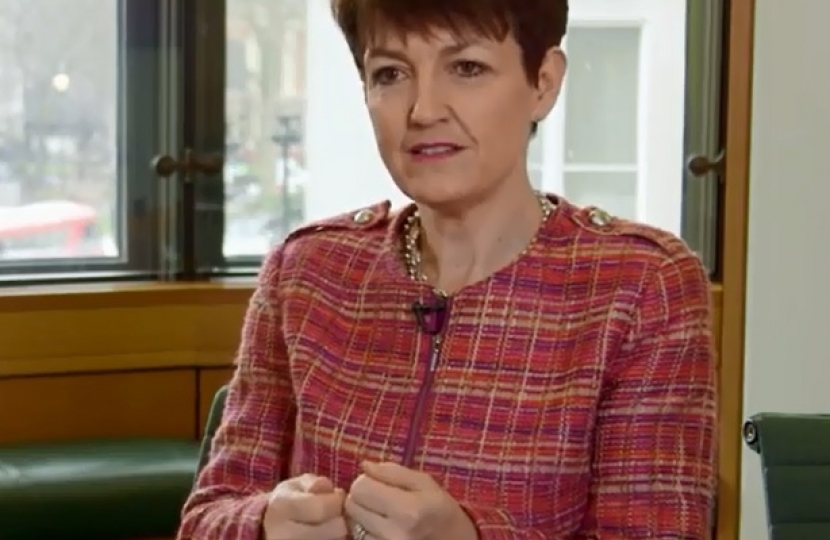
the NHS has the chance to both put its finances on a sustainable footing and continue to offer innovative treatments – and it’s all in the power of managers, argues Jo Churchill MP
Over the last few years, there has been a quiet revolution in the NHS.
In 2013, NHS England launched the Commissioning through Evaluation (CtE) programme to ensure patients could access innovative treatments whilst evidence on the effectiveness of the treatment was gathered and formally evaluated.
And since then, some patients have had access to treatments not previously NHS funded, but deemed worth investigating for potential future NHS inclusion.
In total, six CtE programmes covering four conditions (cerebral palsy, heart failure, stroke and liver cancer) were established, and have been running in a number of centres across England. The results have been astoundingly positive. (Read Ben’s story.)
But I am incredibly frustrated by this. Why? Because each trial treatment was given a target number of patients and while numbers are small the procedures are life-changing.
The window for treatment is narrow and if stopped, innovative work will be hindered.
This year, these levels will be reached and no further treatments will be funded until an evaluation of the data has been completed. This could take years, and will negatively hit thousands of patients – mainly young children and the elderly – who could be benefitting in the interim.
An alternative solution is to invest in growth. This offers greater scope for managers and health care professionals to be innovative and forward thinking
We may end up with a scenario where only the wealthy will be able to buy help for their children. The NHS has unilaterally decided that no-one can benefit while it ponders what are really no-brainer decisions. (See Zachery’s story.)
I cannot see how suspending these treatment programmes can be positive for anyone.
And for once, central government isn’t to blame. Money into the NHS is going up year on year, and will increase by over £8bn during the life of this parliament.
Yet in the last few days before summer recess, some low-key announcements were made about the current parlous state of NHS finances.
First, the NHS finished the year £2.5bn in the red. It could have been worse – managers had benefited from a one-off £400m national insurance windfall this year.
And a change of accounting practice saw the NHS switch resources from capital to revenue budgets, meaning, as the National Audit Office pointed out, long-term investment plans have been set aside for the short-term goal of meeting day-to-day spending.
In other words, NHS England itself is far from putting its finances on a sustainable footing.
Proactive and practical footing
Yet both issues can be fixed. And the solution lies with NHS managers. The NAO has noted delays patients face in being released from hospital are a major and unnecessary drain on funds, costing the NHS £820m last year.
Equivalent care in the community, an underfunded area, would have cost £180m. That amounts to a potential saving of at least £640m – more than enough to sustain CtE trials while a decision is pending, and also to invest in new trials and other technological treatments for patients. Or even cut some of the deficit.
The NHS must be seen to be investing in medical and technological innovations that are already routinely funded in almost every other modern healthcare system
So, one solution is to cut costs. Aggregated savings can mount up. But looking backwards can only be so useful. And it can send a negative message. Patients and their families understandably baulk at every mention of another NHS cost-cutting initiative.
An alternative solution is to invest in growth. This offers greater scope for managers and healthcare professionals to be innovative and forward thinking. And it says to the world the NHS is open for business and exceptional patient care.
And there are massive opportunities available everywhere one looks that can helpfully move the debate around NHS funding to a more proactive and practical footing, giving all patients better outcomes.
This year, UK universities will get around 10 per cent (£1bn) of their research funding from the EU. Although we have no details yet over how Brexit might affect existing programmes and collaborations, UK universities are open to deals to continue these activities.
I believe that it is a low risk strategy for the NHS to partner with these great institutions to deliver innovative, cost-effective treatments for British patients as well as products that can be sold to other health providers worldwide, giving a cash return on the original investment.
Of course, Brexit is not a full and total severing of links to Europe. Partnerships and plans can still be made with European institutions, just as we can already partner and plan with institutions and businesses beyond Europe.
The NAO has noted delays patients face in being released from hospital are a major and unnecessary drain on funds, costing the NHS £820m last year
But the NHS has to do more than talk the talk – it must be seen to be investing in medical and technological innovations that are already routinely funded in almost every other modern healthcare system. NHS England must now walk the walk. And it must let Ben and Zachery and thousands like them walk their own walk too.
The ball is very much in the NHS’s court. But in the meantime, suspending life-changing treatments is not the way to nurse the NHS back to robust fiscal health.
And if we are to grow innovative medical technologies, there’s a need for a long term plan, however annual forecasting does not allow for the development of complex technologies. But that’s a topic for a future article.
Published in the Medical Technology and Innovation Blog of the Health Service Journal
